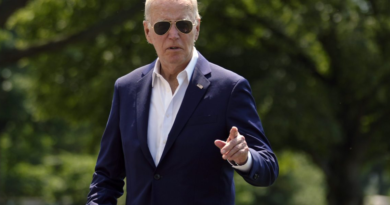Toyota’s bet on hybrid cars seems to be paying off as it rides consumer skepticism of an all-EV future to maintain its lead as the world’s top selling automaker
Hybrid or battery electric vehicles? That debate has been heating up within the auto industry for the past few years. Tesla CEO Elon Musk thinks hybrid vehicles are just a phase, while Toyota’s chairman and former CEO, Akio Toyoda, has long been skeptical of going all in on fully electric vehicles.
And so far, it seems that its skepticism of electric vehicles is working just fine for Toyota. The Japanese automaker’s latest monthly report showed it sold 322,463 hybrids in November, bringing its total hybrid sales for the year to 3.1 million, a 30% increase from the year prior.
Sales of Toyota’s battery electric vehicles increased this year as well: The automaker sold about 95,000 units, a fourfold increase from the previous year. But that figure represents only about 1% of Toyota’s total sales. Despite pledging $28 billion in 2021 to roll out 30 EV models by 2030, the Japanese firm may struggle to catch up with world’s two EV leaders. China’s BYD, for instance, sold just under 800,000 battery electric vehicles in the January to November period this year, and Tesla is projected to hit 1.82 million deliveries globally this year, according to analysts.
But it seems some consumers are looking for an alternative to an all-electric vehicle future.
While EV sales have been growing globally, the pace of growth has been slower in the United States. Americans bought a record number of hybrid vehicles this year, about a million so far, which is a 76% increase from last year, according to Edmunds. That’s something Toyota acknowledged in its monthly report, attributing the robust sales in North America to strong demand for hybrid vehicles such as the RAV4 and Corolla.
In Europe, Toyota said, “sales were up year on year” owing to strong sales of the Yaris, which include hybrid and plug-in hybrid models, and the RAV4 and Corolla. And sales in China for November grew 17% year on year even amid the rise of Chinese EV automakers and a general shift toward electric cars in that market. Toyota said the increase in sales in China was the result of a “rebound from the impact of business restrictions” and sales promotion events at regional motor shows and individual dealerships.
Overall, Toyota had a strong month in November. Vehicle sales including that of its subsidiaries Hino Motors, which makes vans and trucks, and Daihatsu Motor, a compact vehicle manufacturer, hit 986,262 units, a 12% rise year on year and the most ever for the month of November. Worldwide production for the month was another record as well, at 1,067,446 units.
Toyota’s November figures also mean it’s probably keeping its title as the world’s bestselling automaker for the fourth consecutive year. The Japanese firm sold 10.2 million vehicles, including those from its subsidiaries, for the January to November period. Toyota’s sales figures are about 2 million more than that of its closest rival, the Volkswagen Group, which sold 8.3 million vehicles in the same period this year. That 2 million vehicle gap is similar to last year’s results—Toyota sold 10.5 million vehicles in 2022 compared with the Volkswagen Group’s 8.3 million.




